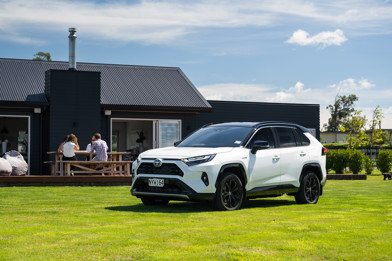- Mercedes-Benz commits to game-changing electric car solid-state batteries by end of decade.
- The company is currently testing with real working prototypes.
- The company says its prototype EQS electric sedan could travel more than 1000km on a single charge.
The race is on to develop new tech that will change electric cars forever.
Solid-state batteries have been touted as the silver bullet for mass electric car adoption and what is needed to make EV utes, 4WDs and sports cars a reality.

The futuristic cells are claimed to be smaller, lighter, more energy dense, faster charging and less prone to fire than conventional batteries.
Nearly every major player in the EV space is working on them, from Chinese battery giants and carmaking behemoths, Japanese powerhouses such as Toyota and Honda and luxury European stalwarts BMW and Mercedes-Benz.

China was thought to be cruising to a win in the race to develop the batteries first, but so far no working prototype has been fitted to a car or test data revealed in public. So there has been a lot of promises but no hard evidence it’s happening anytime soon.
The same goes with the big Japanese players, most have said they’ll have solid-state batteries in cars by 2028.
Toyota Executive Vice President, Hiroki Nakajima, said the battery tech is very important to the future of electric cars, but also said it might never be possible.

“...development is always unpredictable. Frankly, there’s no telling if it will work out or not,” said Nakajima.
"I always take encouragement from Chairman Toyoda’s reminder that, ‘It’s okay to fail’.”
This is where BMW and Mercedes-Benz step in. Both automakers have actually built a battery and fit it to a car that has been tested with findings revealed to the public.
Mercedes-Benz development boss, Markus Schafer, has now said the brand will have solid-state batteries in cars by the end of the decade, according to Automotive News.
Benz’s firm production commitment and prototype trials put it ahead of the rest, which have given aggressive dates but have shown no evidence to back up their claims.
During its testing Mercedes-Benz said its prototype EQS electric sedan could travel more than 1000km on a single charge.
Mercedes-Benz said its testing data showed the new cells boosts driving range compared to current batteries by 25 per cent.
The brand is reportedly targeting 80 per cent range increase by the end of development.
Initially the high cost of developing the technology will likely mean the tech will be reserved for only high-end machines.
A senior Audi engineer told CarsGuide last year that solid state technology wasn’t likely to be feasible for ‘everyday’ cars in the foreseeable future due to the minuscule manufacturing margins of error required.
- Dom Tripolone, news editor.





